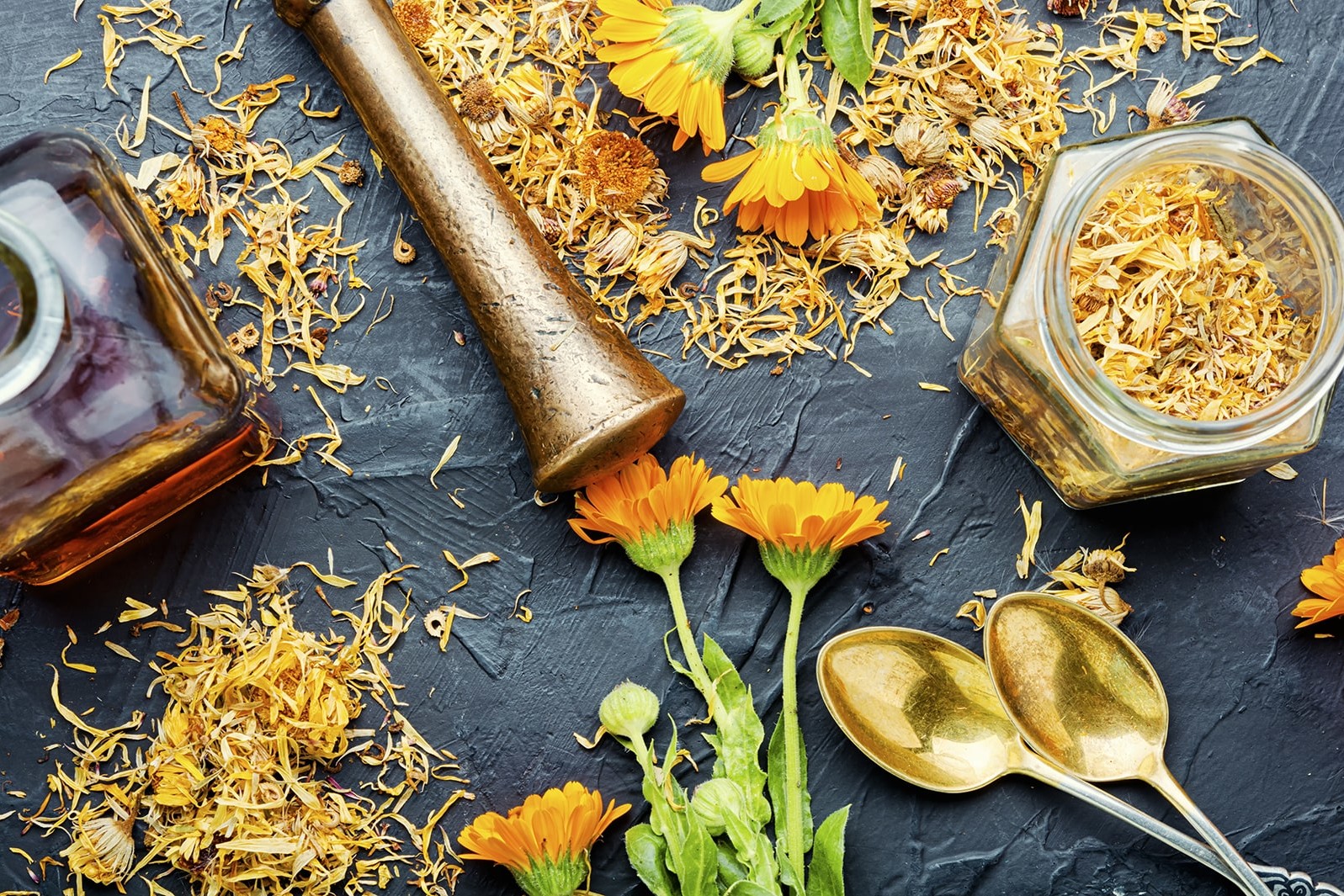Lemon Balm (Melissa Officinalis)
Native to Europe, lemon balm is grown all over the world. It is found in backyard herb gardens, in crops grown for medicine and cosmetics, and is used to scent candles and furniture polish. In the spring and summer, the flowers grow where the leaves meet the stem. If you rub your fingers on these leaves, your fingers will smell tart and sweet, like lemons. The leaves are similar in shape to mint leaves, and come from the same plant family.
As far back as the Middle Ages, lemon balm was used to soothe tension, to dress wounds, and to treat ailments such as toothaches, skin irritations, and sickness during pregnancy. As a medicinal plant, lemon balm is considered a calming herb that has traditionally been used to soothe menstrual cramps, reduce stress and anxiety, promote restful sleep, and ease gastrointestinal complaints (e.g., indigestion, gas, bloating, and colic). It is often combined with other herbs in teas or tinctures for relaxation, such as valerian and chamomile. Having trouble sleeping? Most research on lemon balm has shown that, when added to some sleep hygiene modifications, can be very beneficial for reducing insomnia.
In Europe, lemon balm has been used for treating thyroid problems and has shown an ability to regulate thyroid hormone production. It has been used in the U.S. as a complementary treatment for Graves’ disease, an autoimmune condition in which the thyroid gland is overactive.
Lemon balm may be formulated as a tea, tincture, or cream/ointment. Herbs do interact with other medicines and should not be taken without consulting your wellness practitioner for appropriate dosing.
Resources
- Restorative Medicine. Database Search: Lemon Balm and Thyroid Disease.
- University of Maryland Medical Center. “Hyperthyroidism.” Reviewed April 4, 2012.
- General Herb Information, The Herb Society of America. “Guide to Lemon Balm.”
- University of Maryland Medical Center. “Lemon Balm.”
You May Also Like...
The Ultimate Guide to a Maximizing Magnesium
The Ultimate Guide to a Maximizing Magnesium Mineral balance plays a crucial role in promoting optimal health. Among…
Calendula (Marigold) and Oil Pulling
Calendula (Calendula offcinalis) AKA Marigold You probably recognize the flower, since it’s quite popular and grows…
Stay In Touch!
Join my mailing list to keep up with all the latest nutrition & FxMed learning opportunities



